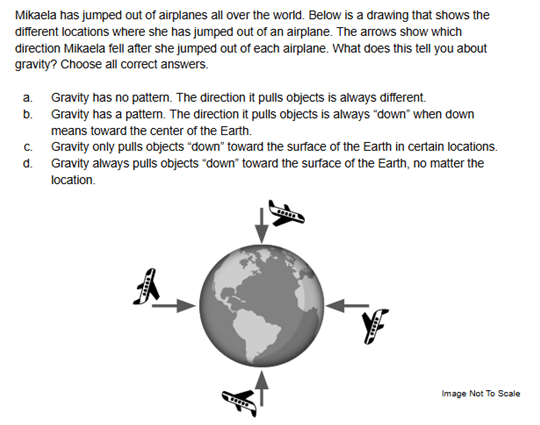Habitable Planets
The third planet from the Sun in our solar system.
What is Earth?
A large, round object in outer space that orbits a star.
What is a planet?
Describes when there is a lot of visible light, the opposite of dim.
What is bright?
A rocky object in outer space.
What is an asteroid?
The air that surrounds a planet.
What is atmosphere?
The fifth planet from the Sun in our solar system.
What is Jupiter?
The sixth planet from the Sun in our solar system.
What is Saturn?
Describes when there is not a lot of visible light, the opposite of bright.
What is dim?
A push or a pull.
What is force?
A type of gas that plants sometimes take in and that animals release when they breathe.
What is carbon dioxide?
The fourth planet from the Sun in our solar system.
What is Mars?
The seventh planet from the Sun in our solar system.
What is Uranus?
Circling another object, like the Earth around the Sun.
What is orbit (revolve)?
An invisible force that pulls any object down, toward the center of a planet, moon, or other object.
What is gravity?
A planet that orbits a star outside of our solar system.
The first planet from the Sun in our solar system.
What is Mercury?
The second planet from the sun in our solar system.
What is Venus?
The amount of space between two things.
What is distance?
The amount of matter an object has.
What is mass?
A place with conditions where a living thing can survive.
What is habitable?
The eighth planet from the Sun in our solar system.
What is Neptune?
All the planets and other objects that orbit around a star.
What is the solar system?
Energy from the Sun that can warm things u and be made into electricity; a renewable resource.
What is solar energy (solar power)?

What is...?
b. Gravity has a pattern. The direction it pulls objects is always “down” when down means toward the surface of the Earth.
d. Gravity always pulls objects “down” toward the surface of the Earth, no matter the location.
The area around a star that is not too hot or too cold for liquid water to exist.
What is the Goldilock's Zone?